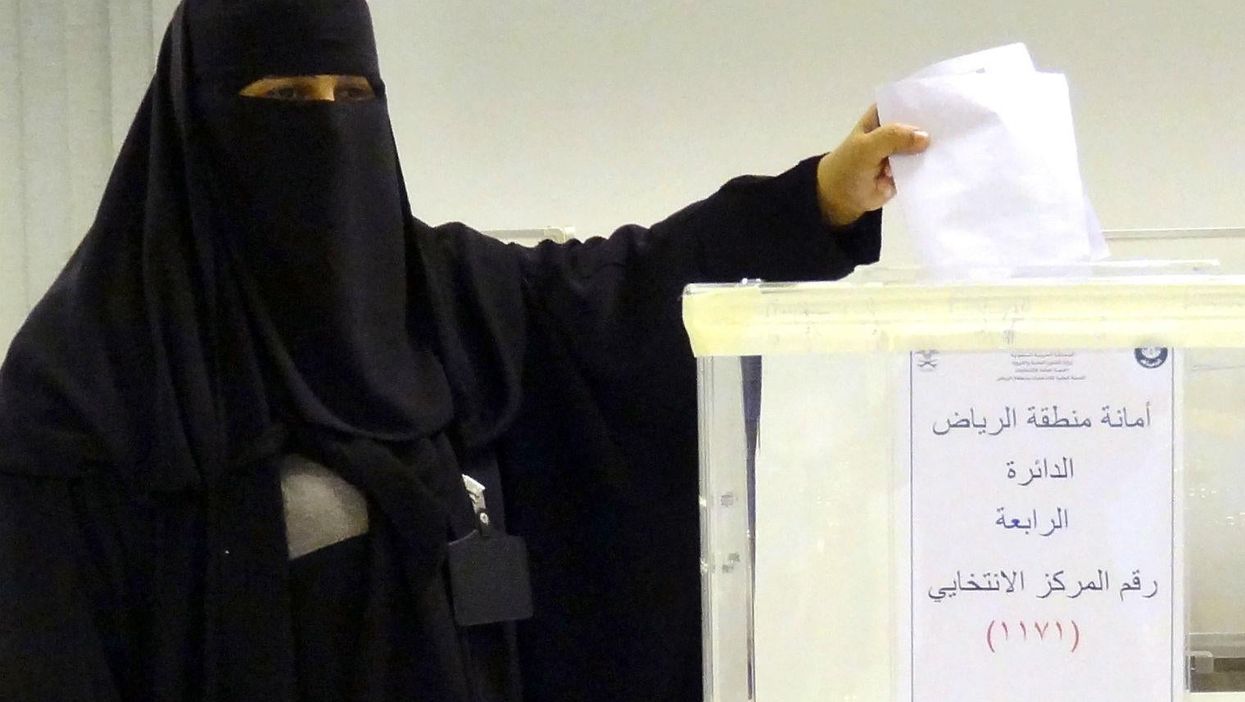News
Bethan McKernan
Dec 12, 2015

Women in Saudi Arabia are voting in elections today in a historic first.
But while the move has been welcomed as an important step towards improving rights for women in the country, the still crippling discrimination women live under means that the change is more symbolic than meaningful reform.
While women are technically free to vote today, there are several barriers that will stop them doing so, including:
Only 978 women will stand alongside 5,938 men in the 2,100 seats available in local municipal councils, the country's only elected public chambers
Since women are not allowed to speak to men outside their family in public, female voters have been unable to talk to male candidates, and vice versa
Women are not allowed to drive to polling stations, so must be accompanied by a man in order to vote
It has been reported that many potential female candidates were disqualified from running without explanation
Out of the 1,263 polling stations in the country, just 424 have been reserved for women's use
Only 1.3million of Saudi Arabia's 20million citizens are registered to vote, and voting requires ID cards. Human Rights Watch says that since women need to be accompanied by a man to go register for these, it is unclear how many female citizens actually possess them
Saudi women must also seek male permission to work, study, travel, marry, open a bank account and access healthcare. They cannot leave the house without being fully covered, and are treated as inferior citizens by the country's legal system, where many trivial or 'moral' crimes are met with capital punishment.
Saudi women outside a polling station in Riyadh (FAYEZ NURELDINE/AFP)More: Women in Saudi Arabia can now drive, but only in a new video game
More: Just for men: Saudi Arabia wants to host a male-only Olympics
Top 100
The Conversation (0)












